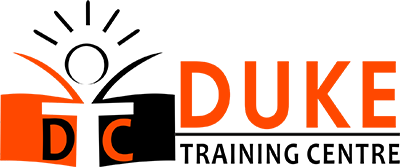Accounting and Finance for Managers Course in Abu Dhabi
Master and Efficiently Control the Finance and Accounting Function
As the UAE continues to grow as a global business and financial hub, employers are seeking accounting and finance professionals who can navigate both local and international markets. At Duke UAE, our Accounting and Finance in Business and Management course is designed for anyone eager to build a successful career in finance-whether you’re a UAE resident, an international professional, or someone preparing to enter the field for the first time. This program combines essential accounting principles, advanced financial management, and hands-on training with leading accounting software, giving you the practical skills and industry knowledge needed to excel in today’s competitive job market. Whether your goal is career advancement, a smooth transition into the UAE workforce, or simply gaining a solid foundation in accounting and finance, our course is open to all who are ready to take the next step.
Module 1 – The Need for Complete and Accurate Accounting Information
- The need for full and accurate accounting information
- Functions of accounting: recording and analysing transactions; reports and statements
- Limitations of financial statements
- Accounting terms and meanings
Module 2 – Capital and Business Finance
- Initial capital and financing businesses; sole proprietors, partnerships, companies
- Working capital, income & expenditure, cash flow and liquidity
- Financial decisions and investments
- Financial assets, gearing and risk; investment appraisal
“I attended the University of South Pacific at Foundation Level before joining CIC. I now hold a CIC Diploma in Accounting, and Business Management, and I work at the Central Bank of the Solomon Islands.”
Module 3 – Principles of Bookkeeping and Books of Account
- Principles of bookkeeping, the ledge, double-entry bookkeeping
- Books of account: cash book, sales book, purchases book, returns books, journals
- The trial balance, manual and computerised accounts
- Bank accounts: current, deposits, savings, interest
Module 4 – Final Accounts (1)
- Financial accounting concepts
- Goodwill, prepayments and accruals
- Trading and manufacturing accounts
- Statistics, percentages and ratios
Module 5 – Final Accounts (2)
- Profit & loss accounts; information, layout, interpretation
- Balance sheets; information, layout, interpretation, equity
- Analysis, ratios, calculations
- Gross profit, net profit, wealth; stock turnove
Module 6 – Principles of Costing
- Purposes, benefits and limitations of cost accounting; key terminology
- Different costing systems explained
- Overheads and allocation
- Standards, variances, activity based costing
Module 7 – Planning and Forecasting, Budgets and Budgeting
- Business objectives, policy formulation; interpretation and implementation
- Financial planning and forecasting
- Budgets and budget preparation; sub-budgets and the master budget
- Budgetary control, variances; inflation
Module 8 – Stock and Inventory Control
- Stock management and control; inventory costs
- Factors affecting the management of stocks and inventory
- Stock levels; factors affecting levels set; types of levels
- Stocktaking and valuation of stocks and work in progress
Module 9 – Credit, Credit Control, Discounts
- Types and common forms of credit
- The role and importance of credit
- Credit control, credit limits and creditworthiness, dangers and bad debts
- Discounts: types, purposes, accounting treatment
Module 10 – Partnership Accounts, Departmental and Branch Accounts, Hire Purchase
- Special features of business partnership accounts, goodwill
- Departmental accounts; purposes, analysis, apportioning expenses
- Branch accounts; centralised, decentralised, consolidated trading, p&l and balance sheets
- Hire purchase, accounting treatment, agreements
Module 11 – Interpretation of Final Accounts, Pricing Policy, Auditors and Auditing
- Working capital management, cash and funds flows, liquidity, borrowing
- Accounting ratios, interpretation & analysis, break-even analysis
- Pricing policy, factors influencing selling prices
- Auditing and auditors; duties, activities
Module 11 – Interpretation of Final Accounts, Pricing Policy, Auditors and Auditing
- Working capital management, cash and funds flows, liquidity, borrowing
- Accounting ratios, interpretation & analysis, break-even analysis
- Pricing policy, factors influencing selling prices
- Auditing and auditors; duties, activities
Module 12 – Computerised Accounting Systems and ‘Packages’
- Computers in accounting, characteristics of computers and systems
- Components of accounting systems; hardware, software, databases
- Applications and advantages of computerised accounting
- Organisation and security of data; management information







